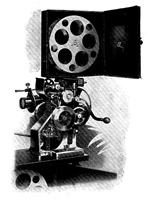An independent film or simply an indie film is known as a film production that is made mainly outside of a major film studio. This type of film production is meant to create a feature film. Independent films can also be a reference to art films, which are also films that are contradictory to many of the films that are mass-marketed. While independent films are produced through independent film companies, they might also be both produced and then distributed by some subsidiaries of the major film studios. However, to be a truly independent video, a film should only receive less than half of its funding from a major studio.
The Edison Trust
The history and the origin of independent films can be found by going back to something called the Edison Trust, founded in the year 1908. The Edison Trust, also referred to as the Motion Picture Parent Company, was simply a trust that comprised all of the major U.S. movie companies, the number one distributor, and the largest raw film supplier, Eastman Kodak. The legacy of the Edison Trust was to eliminate the dominance of foreign films on U.S. screens, standardize the way movies were both distributed and then exhibited in the U.S., and encouraged internal competition among U.S. films. Yet the Edison Trust also hurt its members since it deterred them from getting into feature film production and receiving outside financing for movies. Filmmakers who, despite all this control and monopoly by the Edison Trust, rejected this dominance by the Edison Trust were the first makers of independent films.
U.S. movie companies, the number one distributor, and the largest raw film supplier, Eastman Kodak. The legacy of the Edison Trust was to eliminate the dominance of foreign films on U.S. screens, standardize the way movies were both distributed and then exhibited in the U.S., and encouraged internal competition among U.S. films. Yet the Edison Trust also hurt its members since it deterred them from getting into feature film production and receiving outside financing for movies. Filmmakers who, despite all this control and monopoly by the Edison Trust, rejected this dominance by the Edison Trust were the first makers of independent films.
New Hollywood
New Hollywood, or the American New Wave or even post-classical Hollywood, is a time in American cinema that ran from the 1960s to the early part of the 1980s. This period of time was punctuated by a generation of young and new filmmakers coming to popularity in the U.S. As a result, these filmmakers influenced the kinds of movies produced, their marketing and their production, and even the manner in which the major movie studios approached making movies. These young and new filmmakers were not independent since they were part of the major studio system. However, they brought to people both styles as well as subject matter that made them stand out from traditions of filmmaking as the studios handled it.
The genre of independent films goes back for more than 100 years, with its history beginning with filmmakers who had the guts and the principle to reject the Edison Trust way of doing business. From there, independent films and independent filmmakers only continued getting stronger, first encouraged by the formation of United Artists and then the subsequent formation of the Society of Independent Motion Picture Producers. Both United Artists as well as the Society existed to form something of a bulwark against the major movie studio system that sought to dominate and dictate everything with regards to how movies were made and distributed. In the end, New Hollywood emerged as something of a compromise between the concept of independent films and the studio systems, as they mixed the disregard for tradition that independent films espoused, but still relied on the major studio systems for making their movies.

